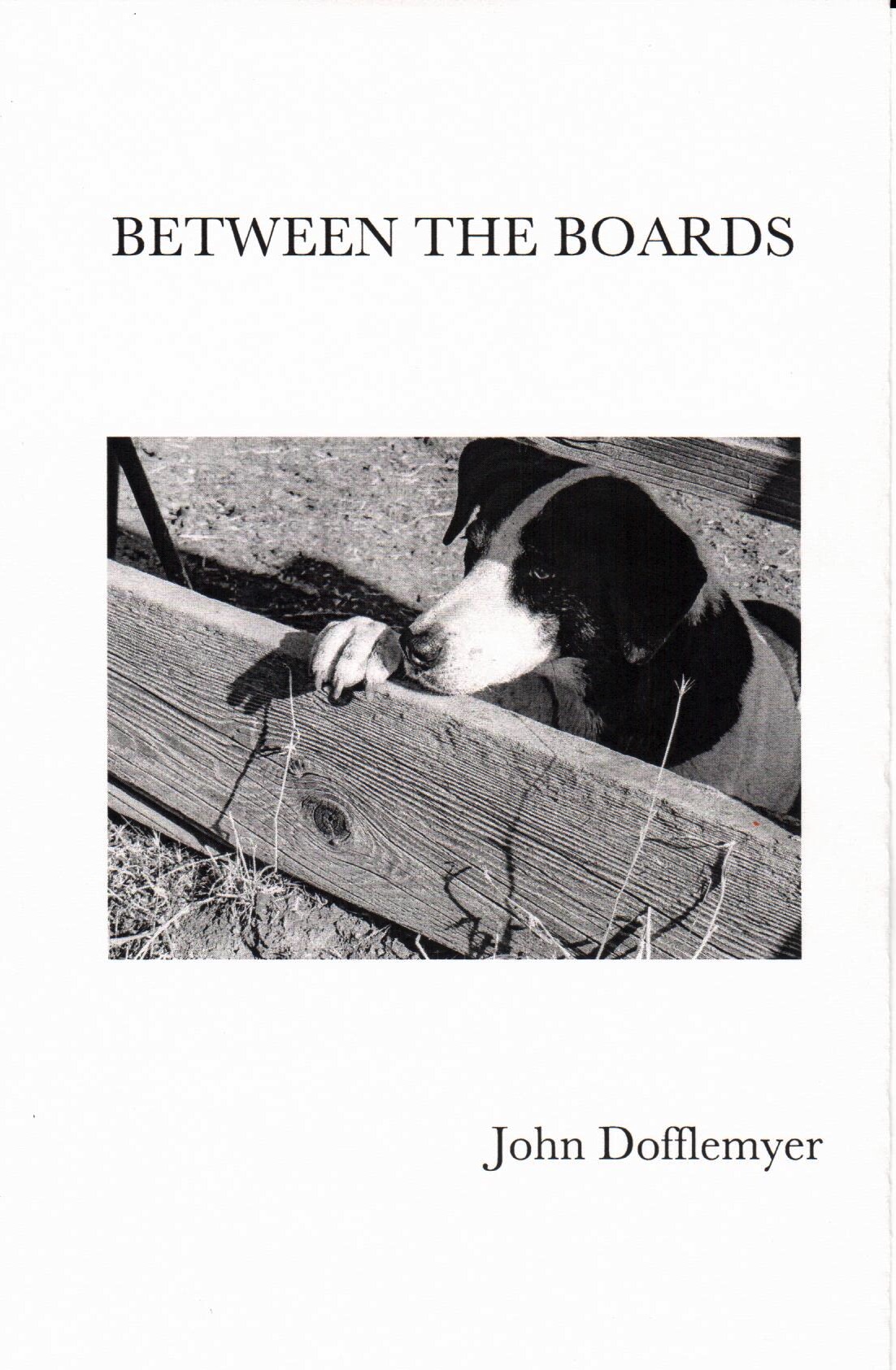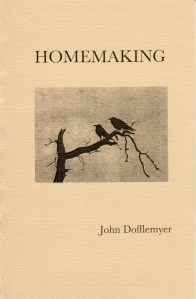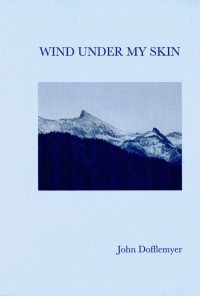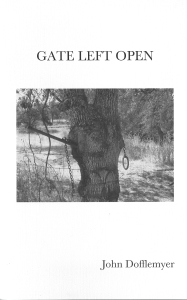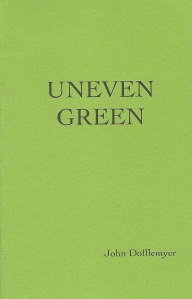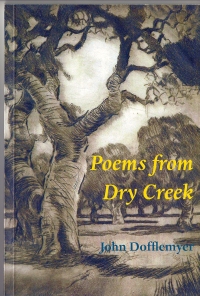Innocent enough: the service pole
holding two hundred and twenty volts
above the ground to the house,
end of the line for electric power
and all its surges, to be replaced
by men and three huge trucks
with hydraulic arms and augers.
That’s how comedies begin
in backyard pastures too dry to irrigate,
visits by servicemen scouting work orders,
asking if the dog bites: “Sometimes.”
The faucet crushed beneath a tire
while we were gone to Bakersfield
trading goosenecks before we wean—
the white geyser and phone call
asking where to turn the water off:
“The pump.” On, after an easy faucet fix
at dusk, but no water to the house,
you found the gate valve stripped,
one last twist that did not quell
the fountain wasting in a drought
with the gopher snake they killed.
Innocence, fear, the tracks were clear.
We cut and plumbed another gate valve,
used once and saved like farmers do,
you and I and the mosquitoes
on our bellies in the mud with wrenches
after the inch-and-a-half Dayton blew
three times under pressure. Face-to-face,
a wrench apiece, the coupler between us
the fourth time tightened to hold
forever in my mind, our wet and muddy
partnership, laughing: “Welcome home.”
Share this: Dry Crik Journal






